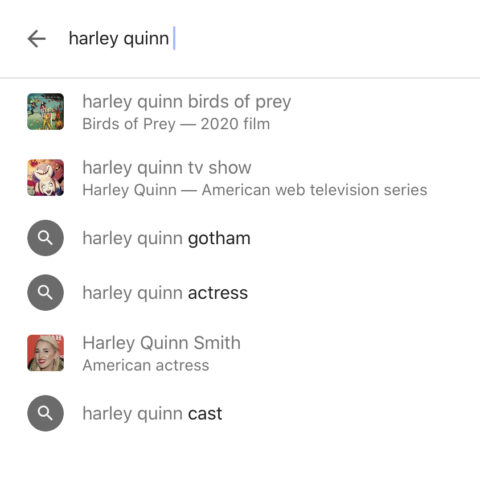In a rare move, a Hollywood studio changes a movie title after its release date to make it more search-friendly.
This past weekend, Warner Bros. released Birds of Prey (and the Fantabulous Emancipation of One Harley Quinn). The title has since been shortened, but the length was not even the main issue.
The real problem? Warner Bros’ money-making character – Harley Quinn of DC Comics fame – isn’t mentioned until the end of the extraordinarily long title.
As SEOs know, high-value keywords should appear toward the beginning of the title. Warner Bros. must have gotten the message, as the movie title has been changed to Harley Quinn: Birds of Prey.
Now, information about the movie can be more easily found by people who don’t know the exact title. Now, when fans of Harley Quinn type her name into the search bar, they’ll see the new movie as Google’s first suggestion.

In a statement to The Verge, a Warner Bros. representative says the name change is part of a “search expansion for ticket sites.” In other words, the studio wants to make it easier for people to find the movie.
Ticket sales for Harley Quinn: Birds of Prey fell short of expectations on opening weekend. The film brought in $33 million at the domestic box office, though it was projected to earn $50 to $55 million.
Related: SEO for Events: 5 Tips to Increase Visibility & Boost Attendance
One of the reasons why the movie didn’t earn as much as anticipated could be due to the name. As The Verge states in its report: “The decision to forgo using [Harley Quinn’s] name in the first place baffled industry members.”
Harley Quinn is a beloved character in the DC Comics universe, so it’s not unreasonable to expect the film to perform better than it has been. With a production budget of $80 million, it’s clear that Warner Bros. saw the character as something worth investing in.
Now, with a new SEO strategy in place, the studio hopes to turn things around and generate more ticket sales. We’ll see over the coming days and weeks what kind of impact this ends up having.
If nothing else, this move by Warner Bros. sends a strong message about the importance of knowing your audience, and making things easy for them to find. At its score that’s what SEO is all about.
Source: The Verge


